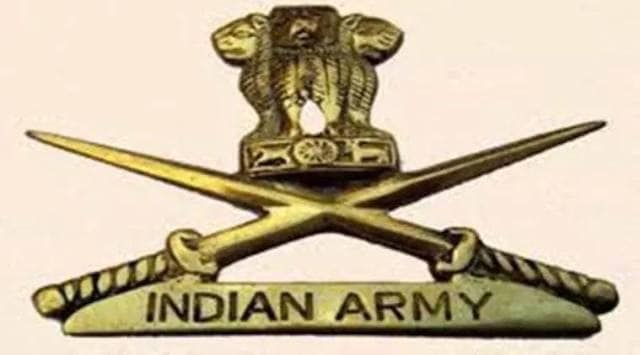Stay updated with the latest - Click here to follow us on Instagram
Army adultery punishments still open to legal challenge, say experts
Section 45 of the Army Act deals with acts of officers with a manner unbecoming of his position and character expected of him and he may be cashiered from service following a court martial. Section 63 of the Act refers to acts prejudicial to good order an military discipline, a sort of omnibus of charges, which can result in punishment upto seven years rigorous imprisonment.
 The top court in 2018 had struck down the 158-year-old anti-adultery law, saying it was unconstitutional as it dented the individuality of women and treated them as "chattel of husbands". (Express Photo)
The top court in 2018 had struck down the 158-year-old anti-adultery law, saying it was unconstitutional as it dented the individuality of women and treated them as "chattel of husbands". (Express Photo) The Supreme Court ruling that defence forces can take action against their officers for adulterous acts and decriminalisation of adultery would not stand in the way of initiating disciplinary proceedings does not comment on the legality of the Army’s actions against such individuals, military legal experts have opined.
Observing that military discipline will be affected if there is an army with “completely loose morals”, the a five-judge Constitution bench Tuesday clarified that its landmark 2018 judgement, which had struck down Section 497 of the IPC that criminalised adultery, was not concerned with the provisions of the armed forces acts. The top court in 2018 had struck down the 158-year-old anti-adultery law, saying it was unconstitutional as it dented the individuality of women and treated them as “chattel of husbands”.
An advocate dealing with military legal matters told The Indian Express, on condition of anonymity, that the Supreme Court has just said that the Army taking action for adultery under certain provisions of the Army Act (Section 45 and 63) was not under adjudication with the court in its original order.
“This is all the apex court has said, which in effect means that since the court has not expressly referred to punishment for adultery in defence services, the services can continue with their procedure for the same. However, when the Army’s action of punishing an officer for adultery under Sections 45 and 63 of the Army Act is specifically challenged before the court, then the situation may be different,” the advocate said. As of now the Army is punishing adultery in the service under Sections 45 and 63 of the Army Act. These sections pertain to the conduct of an officer and do not specifically deal with the charge of adultery.
Section 45 of the Army Act deals with acts of officers with a manner unbecoming of his position and character expected of him and he may be cashiered from service following a court martial. Section 63 of the Act refers to acts prejudicial to good order an military discipline, a sort of omnibus of charges, which can result in punishment upto seven years rigorous imprisonment.
According to Colonel Amit Kumar (retd), a former officer of the Judge Advocate General’s branch, immoral conduct and adultery in armed forces is against the service ethos and customs. “The matter was unnecessarily taken to the Supreme Court when we have the way out in our military law,” said Colonel Kumar.
According him, an Army Order of Chief of Army Staff (COAS) is required which will mention all such acts and actions for punishing them under Army Act Section 63 ( maximum punishment 7 years) or call upon to resign under Section 18 to 20 of Army Act.
“Another way is to make it into a law. For this an amendment is required in Sections 45, 63 or Section 46 of the Army Act. Since that is time consuming and requires an ordinance, and also to avoid misuse in marital discord cases or personal interest of those who can even harm the career of the accused, the case for administrative termination of services of the culprit should be processed in terms of Army Act Sec18/19/20. Further, if the law has been decriminalised then action on the existing policies will have legal implications,” he said.
Former JAG officers are also of the opinion that pending cases of adultery in the Army, Navy or Air Force may be resolved by administrative termination of services of culprits. But certain pertinent questions regarding immoral conduct or adultery have also been raised by experts. “Who decides or concludes the nature of such act, which may only relate to affection? Soldiers are also human beings and who will decide the conduct transforming into misconduct? Only sexual misconduct should lead to such unbecoming conduct and strictly on the basis of proof and not on presumptions,” said Col Amit Kumar.
There have been numerous cases in recent years where both male and female officers have been punished for adultery. The punishment has ranged from dismissal from service and rigorous imprisonment for male officers and only dismissal from service for female officers.
There had also been a move to amend the respective Army, Navy and Air Force Acts and bring a single Act for all three services with amendments, which would incorporate punishment for offences like adultery but the progress of this move has been stymied. In its verdict Tuesday, the Constitution bench presided by Justice K M Joseph clarified that in the judgment on September 27, 2018, the SC was concerned only with the validity of Section 497 of the IPC and Section 198(2) of the CrPC dealing with adultery, and had “no occasion whatsoever to consider the effect” with respect to the Army, Navy and Air Force Acts.







